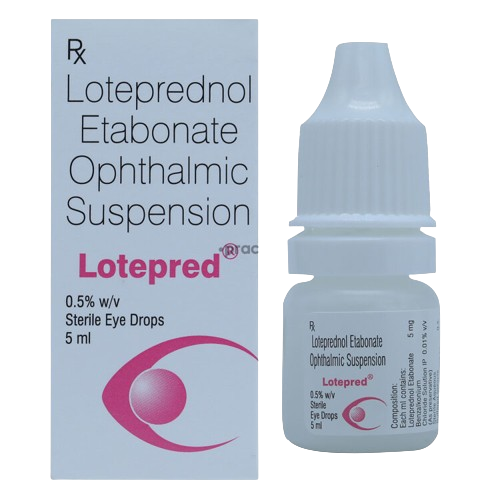
Lotepred eye drops are a common prescription medication used to treat various eye conditions, including inflammation and pain. Proper application and frequency of Lotepred eye drops are crucial for maximizing their effectiveness and minimizing potential side effects.
What are Lotepred Eye Drops?
Lotepred eye drops contain the active ingredient loteprednol etabonate, which belongs to a class of medications known as corticosteroids. These drops work by reducing inflammation in the eyes, which can help alleviate symptoms such as redness, swelling, and discomfort.
Proper Application Technique
Step 1: Wash Your Hands
Before applying Lotepred eye drops, it is essential to wash your hands thoroughly with soap and water. This helps prevent the transfer of any dirt or bacteria into your eyes, reducing the risk of infection.
Step 2: Shake the Bottle
Shake the bottle of Lotepred eye drops gently to ensure that the medication is evenly mixed. This helps to guarantee that each drop contains the proper concentration of the active ingredient.
Step 3: Tilt Your Head Back
Tilt your head back slightly and look up towards the ceiling. This position helps create a stable surface for administering the eye drops and prevents them from dripping out of your eyes.
Step 4: Pull Down Your Lower Eyelid
Using your index finger, gently pull down your lower eyelid to create a small pocket between your eyelid and eye. This pocket will hold the eye drops and prevent them from rolling off your eye.
Step 5: Administer the Drops
Hold the bottle of Lotepred eye drops close to your eye but avoid touching your eye with the tip of the bottle. Squeeze the bottle gently to release one drop into the pocket created by pulling down your lower eyelid. Be careful not to blink or squeeze your eye shut immediately after applying the drop.
Step 6: Close Your Eye
After administering the eye drop, close your eye gently and press your finger against the corner of your eye near the nose. This helps prevent the medication from draining into your tear duct and being absorbed into the bloodstream.
Step 7: Repeat if Necessary
If your healthcare provider has instructed you to use more than one drop per eye or to apply drops to both eyes, repeat the process for the other eye.
How Often Should Lotepred Eye Drops be Used?
The frequency of Lotepred eye drop usage varies depending on the specific condition being treated and the severity of symptoms. In most cases, healthcare providers will prescribe a specific dosage and frequency tailored to each individual patient’s needs.
Acute Conditions
For acute conditions such as post-operative inflammation or allergic conjunctivitis, Lotepred eye drops are often used more frequently initially to control symptoms. This may involve applying one to two drops into the affected eye(s) every hour or two during the first few days of treatment, gradually tapering off as symptoms improve.
Chronic Conditions
For chronic conditions like chronic anterior uveitis or dry eye syndrome, Lotepred eye drops may be used less frequently but on a long-term basis to manage symptoms and prevent flare-ups. In these cases, healthcare providers may recommend applying one to two drops into the affected eye(s) two to four times daily, depending on the severity of symptoms and the individual patient’s response to treatment.
Follow Healthcare Provider’s Instructions
It is crucial to follow your healthcare provider’s instructions regarding the frequency and duration of Lotepred eye drop usage carefully. Do not exceed the prescribed dosage or frequency unless instructed to do so by your healthcare provider, as this can increase the risk of side effects or complications.
Conclusion
Proper application and frequency of Lotepred eye drops are essential for achieving optimal treatment outcomes while minimizing the risk of side effects. By following the recommended techniques for administering the drops and adhering to your healthcare provider’s instructions regarding dosage and frequency, you can effectively manage your eye condition and maintain good eye health.


